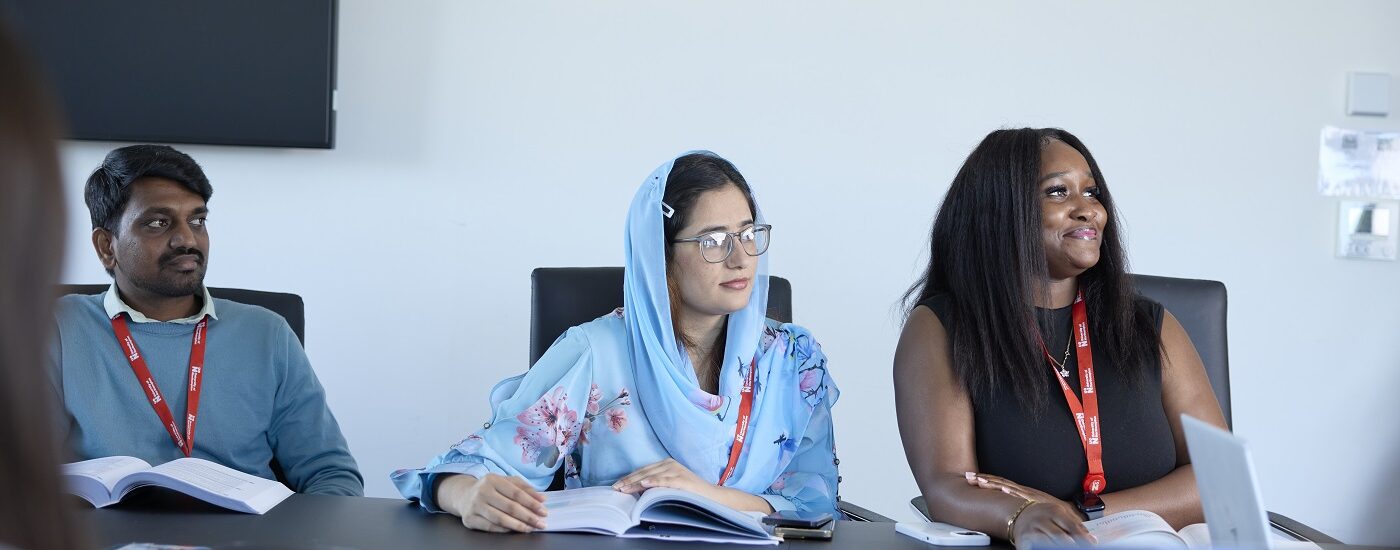Senior Lecturer in Business Analytics
Business Systems and Operations PhD/PhD by Published works

Business Systems and Operations PhD/PhD by Published works
Key Facts
-
Level
PostgraduatePG PhD
-
Duration
PhD: Full Time 2 years - 4 years or Part Time 3 years - 6 years
PhD by Published Works: Part Time 1 year - 2 years -
Starting
October, March
-
See Fees section
-
See Fees section
-
Waterside
Updated 28/03/2025
Updated 28/03/2025
Get in touch
For questions regarding study and admissions please contact us:
UK STUDENTS ENQUIRIES
study@northampton.ac.uk
0300 303 2772
INTERNATIONAL STUDENTS ENQUIRIES
Overview
If you have a degree in Business Systems and Operations or a related field, such as sustainability, circular economy, logistics, supply chains, security management, technology management, or business operations, this PhD / PhD by Published Works programme is an excellent way to broaden your knowledge and research skills. We aim to attract high-quality students who are independent thinkers and have the ambition to create their own pathway for future academic positions. Our PhD in Business Systems and Operations will give you the opportunity to make your mark on the business landscape, by having the freedom to research a host of disciplines that influence society and business. The course looks to train students in research and development abilities in the subject of Business Systems and Operations. Students will gain in-depth knowledge of a specific specialisation area, as well as problem-solving and analysis abilities that will enable them to make substantial new contributions to the field of Business Systems and Operations.
Find out more about the following Research centres and institutes:
- Centre for Sustainable Business Practices (CSBP)
- Centre for Global Economic and Social Development (GESD)
- Centre for Sustainable Futures
The closing dates for applications for the October intake is 1 August, and for the March intake is 11 December.
Highlights
- Highly relevant and structured training focusing on developing your core research skills
- A unique life experience
- Develop yourself as an early career researcher with our PhD Programme
- Make an original and significant contribution to research literature
- We prepare the next generation of researchers to undertake innovative research
- Regular research seminars, conferences and research activities led by our Research Centres and the Graduate School
Entry Requirements
Candidates must have obtained at least a second-class upper (2:1) honours degree, or a Masters degree from a UK university or international equivalent, in a relevant subject area to gain entry to this programme.
Course Content
Fees and Funding
2025/26 Tuition Fees
Fees quoted relate to study in the Academic Year 25/26 only and may be subject to inflationary increases in future years.
Doctor Of Philosophy Degrees
- UK – Full Time: £5,700
- UK – Part Time: £2,845
- International – Full Time: £16,350
- International – Part Time: £7,640
Doctor of Philosophy Degrees by means of Published Works
Including: Doctor of Philosophy (PhD) by means of published works.
- UK – Part Time: £3,600
- International – Part Time: £7,840
Staff
Careers and Employability
We have a tradition of producing high quality doctoral research. Many of our graduates hold academic positions at universities and business schools around the world. We are strongly committed to creating a research community in which researchers can thrive and develop their skills and we view all our Postgraduate Researchers as potential research stars of the future. The University of Northampton has an excellent careers service. Our Careers and Employability Service is dedicated to equipping students with the skills to thrive, adapt and innovate in our ever-changing world.
Facilities
Our PhD students have access to exceptional research facilities such as:
- Skills support for PhD students
- Dedicated PhD study area with computer and printer in the Learning Hub
- Well-equipped library with access to academic e-books, journal articles and learning resources for on-site and off-site study
- Spacious individual and group working space and discussion areas
- Library and Learning support for PhD students
- Teaching and Research Assistant opportunities should you meet the requirements
- Opportunities for research collaboration with staff and students
- Excellent social groups for student meetings and engagement








